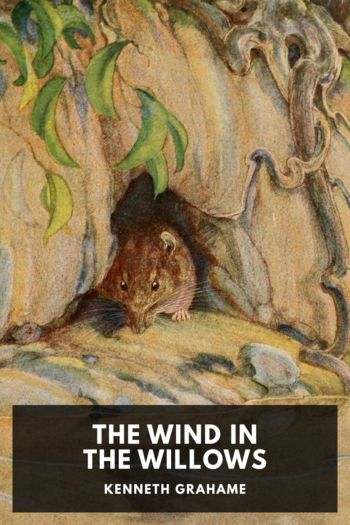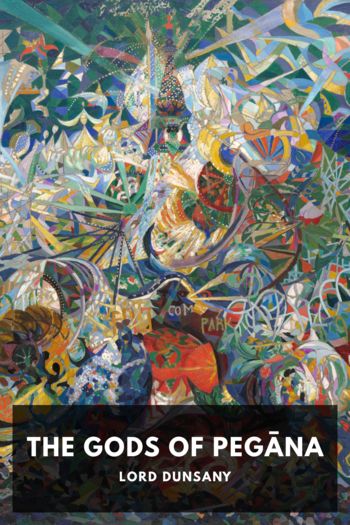Genre Other. Page - 306

Description
Sometimes described as thrilling, sometimes as comic, and sometimes as metaphysical or spiritual, The Man Who Was Thursday is perhaps a little of each. The tale begins when an undercover policeman infiltrates a mysterious Anarchist group. As the novel progresses, things become more comic and improbable, and eventually evolve in to a sort of abstract, dreamlike state. Filled with Christian allegory, Thursday is a glittering, fascinating exploration of good versus evil and theology through the lens of adventure, wit, and the surreal.

Description
The Last of the Mohicans is one of the most famous tales of pioneer American adventure. Set during the French and Indian War, Mohicans tells the tale of the journey of two daughters to meet their father, a colonel, at Fort William Henry. The road is long and dangerous, and they, along with their American and Native guides, encounter adventure at each step.
Mohicans is actually the second book in a pentalogy, the Leatherstocking Tales pentalogy. While the pentalogy saw success in its time, today Mohicans is by far the best-known of the books.

Description
Madame Bovary, often ranked among the greatest novels of all time, is Flaubert’s first novel, and considered to be both his masterpiece and one of the most influential works in literary history, with authors from Henry James to Proust to Nabokov heaping it with praise.
The novel tells the story of Emma Bovary, a commoner wife of a country doctor, and her attempts to escape the drudgery of day-to-day mediocrity by engaging in adulterous affairs and overspending on luxuries. She remains unsatisfied even though her husband adores her and they want for little, and her shallowness eventually leads to their ruin.
The story was first serialized in Revue de Paris, where prosecutors tried to have it censored for obscenity, arguing that not only is the story immoral, but that realism as a literary style is an offence against art and decency. The trial only served to increase the story’s fame, and when it was published as a single novel it quickly became a bestseller.
The novel is groundbreaking in its emphasis on the psychological and emotional lives of its characters. Literature up to then had mostly focusing on the external events that make characters react, instead of focusing on the internal thought processes of those characters. Madame Bovary changed that forever. It was also revolutionary in its criticism of the middle class, which at the time was a still-new social class vying for elbow room between the working poor and hereditary aristocracy. Flaubert critiqued the middle class as being ambitious, shallow, greedy, materialistic, and totally without culture; Emma’s burning desire to reach even higher social strata, contrasted against that satisfaction being fundamentally denied to her by her middle-class nature, is an early echo of Marx’s theory of alienation in industrial societies.
Today Madame Bovary, with its careful but charming description of the banality of everyday life, is considered the first great example of literary realism in fiction novels. Eleanor Marx-Aveling’s translation, though over a hundred years old, is remarkably fresh and smooth, and is a pleasure even for modern readers.

Description
Leo Tolstoy wrote this short meditation on sadness and the meaning of life when he was middle aged. He had already completed his masterworks, Anna Karenina and War and Peace, reared fourteen children, and gained fame and acclaim in Russia as a man of letters. But despite having attained that success, he still found himself unhappy and always returning to the disturbing idea that all achievement is meaningless.
A Confession is his attempt to put these thoughts in words as he teetered on the brink of suicide. It forms the first in a four-volume series that included A Criticism of Dogmatic Theology, The Gospel in Brief, and What I Believe (also known as My Religion or My Faith).

Description
Philip K. Dick built an enduring literary reputation writing powerful science fiction in the pulp magazines of the 50s and beyond. This collection of several of his short works, arranged in chronological order and all published in now-defunct science fiction pulp magazines, is a slice from his early career. Many of these stories explore the themes of war and whether humanity is intrinsically violent and conflict-torn. Each of them is a fascinating jewel of speculative fiction.

Description
The Wind in the Willows, the story of four animals and their adventures in the idyllic English countryside, started out as bedtime stories Grahame would tell his son. He eventually started writing them down, and finally produced this much-loved childrens classic.
In continuous print since 1908, The Wind in the Willows has been illustrated countless times and adapted to stage, radio, and screen.

Description
The Gods of Pegāna, Lord Dunsany’s first published book, is a strange and wondrous creation. In it he creates the pantheon of gods who rule over the titular world. The prose alternates between being biblical, high-minded, and childish, with the gods frustrating their human subjects through their single-minded and often completely inscrutable actions. When they’re not busy being mysterious, they’re busy taking revenge on each other.
It’s possible these short tales were written to convey lessons about life, death, and the nature of belief, though the rhythmic simplicity of the prose and the strange and often petty nature of the gods leaves that up to debate. Regardless, The Gods of Pegāna is a fascinating and influential read.

Description
At the time of the release of this ebook edition of The Big Time, it remains the only Hugo Award–winning work in the public domain. That makes it a very special treasure indeed!
The Big Time tells the tale of a group of servicemembers who work in facilities isolated from regular space-time. They’re involved in a war conducted by two shadowy groups that spans time itself, with all of humanity as pawns on an ever-changing historical battlefield. It explores a fascinating range of themes including time travel, the purpose of war, isolation, and love in the face of it all.

Description
Algis Budrys’ science fiction writing career is long and storied. This collection of his early stories published in science fiction pulp magazines is a window into his imagination and style.

Description
Arthur Machen was a Welsh man of letters who wrote his most famous work in the late 1890s and early 1900s. While his body of work is wide, he’s perhaps best known for his supernaturally-flavored proto-horror short stories. The Great God Pan—perhaps his most famous work—along with “The Inmost Light” and The White People deeply influenced later writers like H. P. Lovecraft. Stephen King has gone so far as to call The Great God Pan “maybe the best [horror story] in the English language.”
Besides his horror short stories, Machen also wrote a handful of post World War I supernatural shorts. One of these, “The Bowmen,” was published in a popular newspaper and was implied to be non-fiction, leading to the creation of the “Angels of Mons” urban legend. This collection includes several other World War I short stories published by Machen.